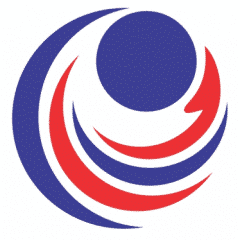How can you identify the signs and symptoms of Sudden Cardiac Arrest?
Sudden Cardiac Arrest (SCA) is a condition where the heart stops beating abruptly causing the loss of essential life-sustaining functions such as breathing and consciousness. Some people also experience shortness of breath, acute chest pains, or even nausea. A sudden cardiac arrest will lead to certain death if not treated within minutes. To improve the chances of survival, it is advised to give the patient undergoing a cardiac arrest CPR (Cardiopulmonary Resurrection) by shocking with a defibrillator or by performing chest compressions.
What causes Cardiac Arrest?
One of the major grounds for a person to undergo a Sudden Cardiac Arrest and/or Death is the discrepancy in the electrical conductivity of the heart, where the contraction signals don’t reach the ventricles and thus, the cardiac output (the volume of blood pumped out of the heart to the rest of the body) decreases. This abruption in the regular beating of the heart can be characterized as arrhythmias – tachycardia (sudden increase in the number of heartbeats, usually above 100; which restricts the proper emptying of blood from the ventricles in the body) or ventricular fibrillation (quivering of ventricles causing missed heartbeats).
Sudden Cardiac Arrest can also occur due to other cardiac reasons like,
- Coronary Artery Disease, or ischemic heart disease, causes an irregularity in the blood flow within the chambers of the heart or blood flow to the heart due to a blockage in one or a few of the arteries. This blockage reduces the amount and speed of blood flow making the individual more susceptible to a cardiac arrest.
This is observed most commonly in people of old age or people with high blood pressure and high cholesterol. - Structural Heart Disease includes conditions like cardiomyopathy (weak heart muscles that make the delivery of blood difficult), myocarditis (caused by a viral infection that weakens the heart), irregular cardiac rhythms, hypertensive heart disease (caused due to high blood pressure and thickening of heart walls), or congestive heart failure. These affect the regular structure of the heart thereby weakening the overall musculature and can result in sudden cardiac arrest.
- Inherited arrhythmia syndrome where the individual is born with a condition that causes abnormal heart rhythms leading to arrhythmias. In such scenarios, the person already has an irregular heart rhythm which can lead to a cardiac arrest at any time.
Non-cardiac causes include trauma, internal bleeding, pulmonary embolism, drowning, overdose, intercranial haemorrhage, etc.
How can you identify the signs and symptoms of an SCA?
The obvious symptom of the onset of a cardiac arrest is a new, non-specific onset of chest pain that worsens by the minute. The pain can radiate down to one’s left arm and the person is also susceptible to lose consciousness and find it extremely difficult to breathe. The individual may also feel dizzy, nauseous, sudden weakness, and vomiting. The person may also experience increased sweating, palpitations, and chest discomfort.
Risk Factors associated with SCA
Age is the biggest risk factor. Along with it, people with high cholesterol, smokers, obesity problems, lack of physical exercise, and family history also play a key role. Other factors that increase further chances of a sudden cardiac arrest include any previous episode of cardiac arrest, chronic kidney disease, sleep apnea, lower levels of potassium and magnesium due to improper nourishment, and drugs. Men are more at risk of having sudden cardiac arrests than women.
Diagnosis and Treatment
The diagnosis of SCA is generally difficult as it happens without any forewarning and can prove fatal. But if you’re at a high risk of SCA, you should consult a cardiologist for an appropriate course of action. The patient might have to undergo screening tests like electrocardiogram (ECG), echocardiogram, or cardiac MRI. None of these are invasive techniques and can be performed with little to no harm. But the doctor might also suggest invasive screening tests such as Cardiac catheterization, blood tests, and electrophysiological study of the heart.
Read about: 2o best Cardiac Surgeons in India
Since SCA is an emergency and every passing minute proves to be one step closer to death. It is highly important to provide emergent care in the form of performing chest compressions on the person or shocking them with an available AED (automatic electrical defibrillator), both can be performed by anyone with proper knowledge and awareness. Also, emergency services should be called right away.
Personally, a person who is at risk should be careful of his health and overall stress levels. He should not smoke and keep his cholesterol levels in specified limits. It is also recommended to have some amount of physical activity such as walks or yoga at the least. They should also visit their cardiologist for regular check-ups and get an implantable defibrillator if the doctor recommends.
